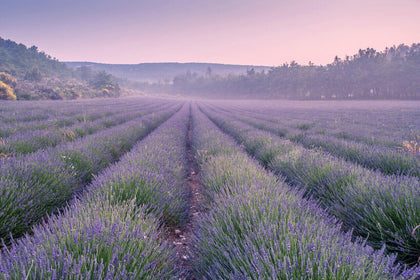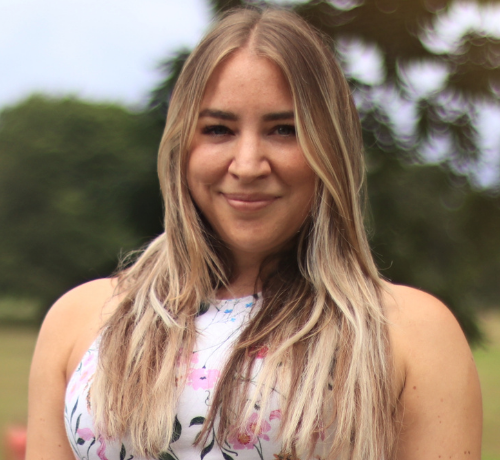Dealing with rapid hair loss is especially challenging because it's visible to the outside world. There's still a stigma surrounding bald patches, and thinning hair can negatively impact confidence levels.
When it comes to hair loss and thinning, stress, age, hormones and medical conditions all play a role, but what truly helps encourage healthy hair growth? Are strong chemicals necessary, or can you reduce hair thinning and improve scalp health with something as simple and natural as essential oils? Read on to discover the best essential oils for hair growth. Plus, explore the clinically proven products that can help stimulate hair follicles and soothe your hair loss woes.
What Are Essential Oils?
There's no magic wand that will rapidly stimulate hair growth overnight, but can essential oils help? We asked trichologist and hair expert Celestine Gitau for her insight.
"Essential oils are organic substances generated from aromatic plants," she said. "They have been used for disinfection, anti-inflammatory, soothing, and stimulating substances worldwide, and have the potential for curative treatment usage."
Essential oil is extracted from the plant via evaporation or distillation techniques. They have long been included in alternative, homeopathic and Eastern medicinal approaches because they present low-risk side effects. Every essential oil has a different scent and can be used for a different purpose.
Explore: Shampoos to Combat Thinning Hair
Is There a Difference Between Essential Oils and Carrier Oils?
Essential oils are highly concentrated and, therefore, highly potent. To avoid irritation and encourage a healthy scalp, always combine your essential oil with a carrier oil.
"The difference between essential oils and carrier oils is that essential oils are potent oils that would irritate the scalp if applied directly. Carrier oils carry the essential oils and provide an effective dilution that can penetrate the skin or scalp without causing irritation."
Carrier oils are versatile, very common and fatty-acid-based, making them perfect for DIY at-home hair treatments. When choosing your carrier oil, always do a patch test on your skin first to avoid irritation.
You can use the following oils as a carrier oil when applying essential oils:
- Argan oil: For all hair types.
- Marula oil: For all hair types.
- Pumpkin seed oil: For curly hair, especially.
- Almond oil: For all hair types.
- Moringa oil: For processed or colored hair.
- Grapeseed oil: For fine, oily hair.
- Jojoba oil: For dry scalps.
- Olive oil: For thick hair.
- Coconut oil: For encouraging shine.
- Castor oil: For dry scalps and hair breakage.
Shop: Nicole Franzel's Healthy Hair Product Picks
Do Essential Oils Impact Hair Growth?
If you're on a mission to stop thinning hair and reduce hair breakage, you might be tempted to try any and all topical solutions. Experimenting with essential oils that stimulate hair growth seems like an easy, risk-free option — but does it work?
Look for Products With Essential Oils Plus Other Ingredients
Rather than rely on solutions that may or may not be effective, look for products that include essential oils alongside other proven ingredients. VEGAMOUR includes essential oils in its products and never uses artificial fragrances. VEGAMOUR products are clinically proven across the board to help increase hair density and improve the overall integrity of strands without relying solely on essential oils. The gently cleansing but powerful GRO Revitalizing Shampoo contains a blend of lemon peel oil alongside bergamot to revive your senses and leave hair feeling refreshed. The GRO Revitalizing Conditioner leaves hair quenched and nourished with marula oil and a fragrant mix of orange and lemon peel oil.
The GRO Hair Serum is a plant-based, all-natural treatment that has been clinically proven to soothe the scalp and stimulate hair follicles. The gentle but effective daily treatment contains mung bean, curcumin and red clover, which work together to enrich the hair with minerals and clear the scalp from free radicals.
How To Use GRO Hair Serum
Simply apply a full dropper of the serum to the scalp daily and massage in. Use on towel-dried or dry hair and style your hair as normal. The lightweight serum is delicate, so it won't make hair look or feel greasy.
Essential Oils That Might Help Hair
Some essential oils have more evidence behind them than others so do your research before choosing one that works for your needs. Here are some essential oil options to explore:
Rosemary Essential Oil
If you're looking to increase or maintain hair density and trigger overall hair growth, rosemary essential oil has some evidence to suggest its effectiveness. In one study involving people struggling with alopecia areata, rosemary oil performed as well as some chemical hair regrowth treatments.
Mix a few drops of rosemary oil with melted coconut oil or the carrier oil of your choice, add to your scalp and massage. Use a relaxing scalp massager to stimulate blood flow for optimal scalp health. Leave the treatment on for about 10 minutes and rinse off with shampoo.
Peppermint Essential Oil
As well as smelling fresh, peppermint essential oil contains approximately 40% menthol. Menthol can trigger a cool, tingling sensation that increases circulation. Though the studies are limited, many hair experts consider peppermint one of the best essential oil for clearing clogged hair follicles and increasing the depth of hair follicles. Hair loss can halt when the scalp and hair follicles are healthy.
Add two drops of peppermint oil to your chosen carrier oil. Apply the mixture to your scalp, massage, and settle for about five minutes before washing with a nourishing shampoo and conditioner.
Lavender Essential Oils
If you're ever feeling stressed or overwhelmed, lavender oil is the scent recommended to calm and soothe. Though the research is limited, lavender oil is also believed to generate the growth of cells and potentially encourage hair growth. In addition, in a 2014 review, lavender oil exhibited antimicrobial properties, which can help prevent bacteria and fungi from growing, keeping the scalp in peak condition.
Combine several drops of lavender oil with a large scoop of carrier oil and massage directly into the scalp. Leave the treatment on for at least 10 minutes and then wash as usual. Apply several times a week to see results.
Cedarwood Essential Oil
Cedarwood oil is thought to reduce hair loss and encourage growth by balancing out the sebum-producing glands in the scalp. When mixed with lavender and rosemary oil, one study found that cedarwood essential oil reduced hair loss for those struggling with alopecia areata.
You might not find cedarwood oil in your local grocery store, but you'll likely find it online or in a health food store. Mix two tablespoons of carrier oil with a few drops of the cedarwood oil and massage into the scalp. Leave for a few minutes and then rinse thoroughly with shampoo,
Clary Sage Essential Oil
Lavender oil and clary sage oil contain linalyl acetate, which some studies suggest can increase hair growth. It can also prevent breakage and strengthen strands, which is important for healthy hair.
Choose your carrier oil and mix in approximately three drops of clary sage oil. You could also add the oil to your conditioner and leave on the scalp for about 10 minutes.
Bergamot Essential Oil
Bergamot oil was found in one study to reduce inflammation and help wounds heal, which could help promote hair growth. Another study found that bergamot oil produces antibacterial and antifungal activity when applied to the scalp.
Add three drops of bergamot oil to your carrier oil and mix. Apply to the scalp and leave for up to 15 minutes before rinsing.
Thyme Essential Oil
Inflammation and aging can contribute to hair loss. Thyme oil is a potent essential oil that can stimulate the scalp and potentially prevent hair loss as you age.
Because thyme oil is so potent, mix only two drops with your carrier oil. Leave the treatment on the hair for 10 minutes and then wash thoroughly.
Lemon Essential Oils and Tea Tree Essential Oil
If you're struggling with dandruff, lemon oil or tea tree oil can be an effective treatment. One 2015 study found that lemon oil helps reduce flakes and other dandruff symptoms in just one week. A clear and healthy scalp can impact how well the hair grows.
What Are the Risks of Using Essential Oils?
Because essential oil extract is so concentrated, always dilute with a carrier oil. Using essential oils might make the skin more sensitive to sun exposure. Some experts also suggest using caution when using essential oils during pregnancy, while others say it's perfectly fine and safe. Consult your doctor if you're pregnant or breastfeeding.
"There are no documented risks of using essential oils in pregnancy," noted Gitau. "However, using the essential oils directly onto the scalp may cause irritation."
If you experience allergic reactions (itching, swelling and irritation), seek professional medical advice.
#include-related-slider#
The Final Word
You can try many essential oils to help encourage hair growth, but there are no guaranteed results. Instead of relying on essential and carrier oils, you might pick products formulated with essential oils.
If you're short on time but desperately want to see real hair growth results, maintain your overall hair wellness with a 360° approach. Reduce stress levels, use vegan, all-natural products scientifically to produce results and keep a nutritious diet.
More From VEGAMOUR
- Want to Boost Your Immune System? Here's What Doctors Say
- Reasons Your Your Scalp and Hair Hurt
- What Causes Female Hair Loss on the Back of the Head?
Photo credit: janiecbros/iStock
Back


















